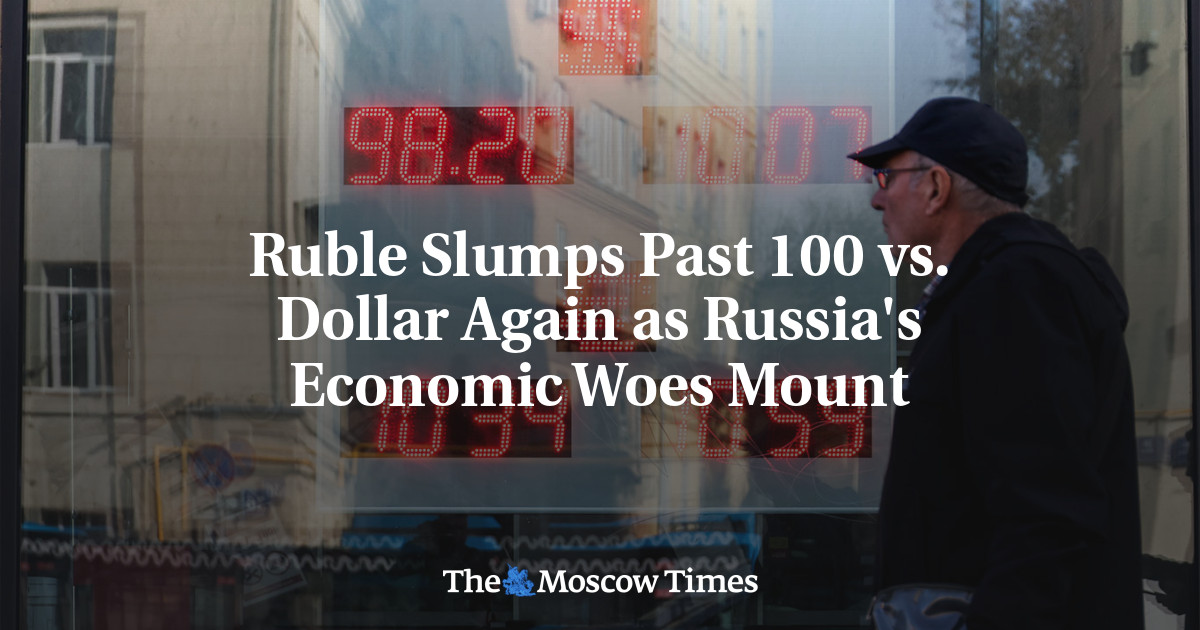
Russia’s currency briefly fell past 100 against the dollar on Tuesday, continuing to weaken on signs that the country’s economy is facing slower growth and higher inflation amid the war in Ukraine.
The psychological threshold of 100 against the dollar raises the prospect of weaker spending power for Russians, who are forced to pay more for imported goods.
The ruble plunged to 150 against the dollar after war broke out last year, before recovering thanks to capital controls introduced by Russia’s Central Bank to limit the impact of Western sanctions.
But the value of the currency has again been sliding in recent months, as Russia imports more and exports less.
Russian Central Bank governor Elvira Nabiullina warned last month that growth would slow this year and into 2024.
In August, the Central Bank hiked its benchmark interest rate to 13% in a bid to shore up the currency and fight inflation, which is still above the 4% target.
Plans announced last week for a massive increase in defense spending have also sparked concerns about the government’s finances, as oil and gas revenues continue to be impacted by sanctions.
President Vladimir Putin recently ordered the government and the Central Bank to take measures to stabilize the currency, saying its weakness was the main cause of rising consumer prices.